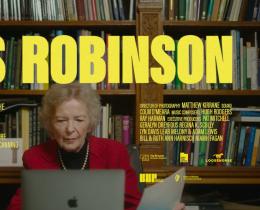The fossil fuel divestment movement is a grassroots effort to stop climate change by influencing how institutions and governments invest their money. Since it started several years ago, the movement has gained momentum.
The Fossil Free campaign, promoted by 350.org, the climate activism organization founded by Bill McKibben, urges institutions to divest their interests (remove their investments) from fossil fuel companies within five years. The divestment is intended to influence the 200 publicly-traded companies that hold the majority of the the proven coal, oil, and natural gas reserves. The campaign demands these companies stop exploring for new fossil fuels, cease lobbying efforts to preserve special tax breaks and incentives, and leave 80 percent of their current reserves underground.
Why leave 80 percent where it is? Based on the amount of carbon emissions put into the atmosphere in the last 150 years, and particularly in the past few decades, if we’re to prevent the most dangerous consequences of climate change, then 80 percent of all fossil fuels we know to exist must remain unused. If they don't, some scientists say, we will overspend our carbon budget.
A number of institutions have committed to pull their investments out of fossil fuels, including the cities of Portland and Eugene, Oregon; Seattle; a number of cities in California; Boulder, Colorado; Ithaca, New York; and Northampton, Massachusetts, among others. Several Unitarian and Quaker institutions have agreed to divest. Eight colleges, mostly small progressive ones, have pulled funding as well, and divestment campaigns are active on roughly 100 campuses.
Larger institutions, with large investments, are not signing on as quickly, despite student support. While the city of Cambridge, Massachusetts, has joined the divestment movement, Harvard University (which is located in Cambridge) has decided not to, despite nearly three-quarters of its student body voting to pull the university’s $30+ billion endowment out of fossil fuels.
When Harvard University rejected the call to divest in 2013, president Drew Faust wrote that while he and Harvard agree that climate change is a serious threat,
Harvard is an academic institution. It exists to serve an academic mission—to carry out the best possible programs of education and research. We hold our endowment funds in trust to advance that mission, which is the University’s distinctive way of serving society. The funds in the endowment have been given to us by generous benefactors over many years to advance academic aims, not to serve other purposes, however worthy. As such, we maintain a strong presumption against divesting investment assets for reasons unrelated to the endowment’s financial strength and its ability to advance our academic goals. […]
We should also be clear-sighted about the risks that divestment could pose to the endowment’s capacity to propel our important research and teaching mission. Significantly constraining investment options risks significantly constraining investment returns. The endowment provides more than one-third of the funds we expend on University activities each year. Its strength and growth are crucial to our institutional ambitions—to the support we can offer students and faculty, to the intellectual opportunities we can provide, to the research we can advance. Despite some assertions to the contrary, logic and experience indicate that barring investments in a major, integral sector of the global economy would—especially for a large endowment reliant on sophisticated investment techniques, pooled funds, and broad diversification—come at a substantial economic cost.”
Concern over the financial risks of pulling money from an “integral sector of the global economy,” as Faust calls it, is common. Whether it’s a valid concern may depend on a particular institution's or person's investment situation, though proponents would argue that it's possible to invest responsibly and successfully.
Other critics argue that institutional divestment will do little to influence the behavior of fossil fuel companies. An opinion piece in the New York Times points out that all the university endowments in the nation total $500 billion, which sounds substantive until you realize the scale of the fossil fuel industry. In 2012, the industry received $544 billion in subsidies alone. Stanford University’s $19 billion endowment, the piece says, is a tiny fraction of a percent of all global investment. It’s not a drop in the bucket; it’s a drop in the ocean.
Ultimately, behind claims of any ability to influence fossil fuel companies, behind the utilitarian arguments, the divestment movement is about determining boundaries in environmental ethics. Can concerns about climate change be squared with profiting from the industry that produces significant greenhouse gas emissions? It's a big question, with an unquantifiable answer, but an important one for individuals and institutions to be asking today.



